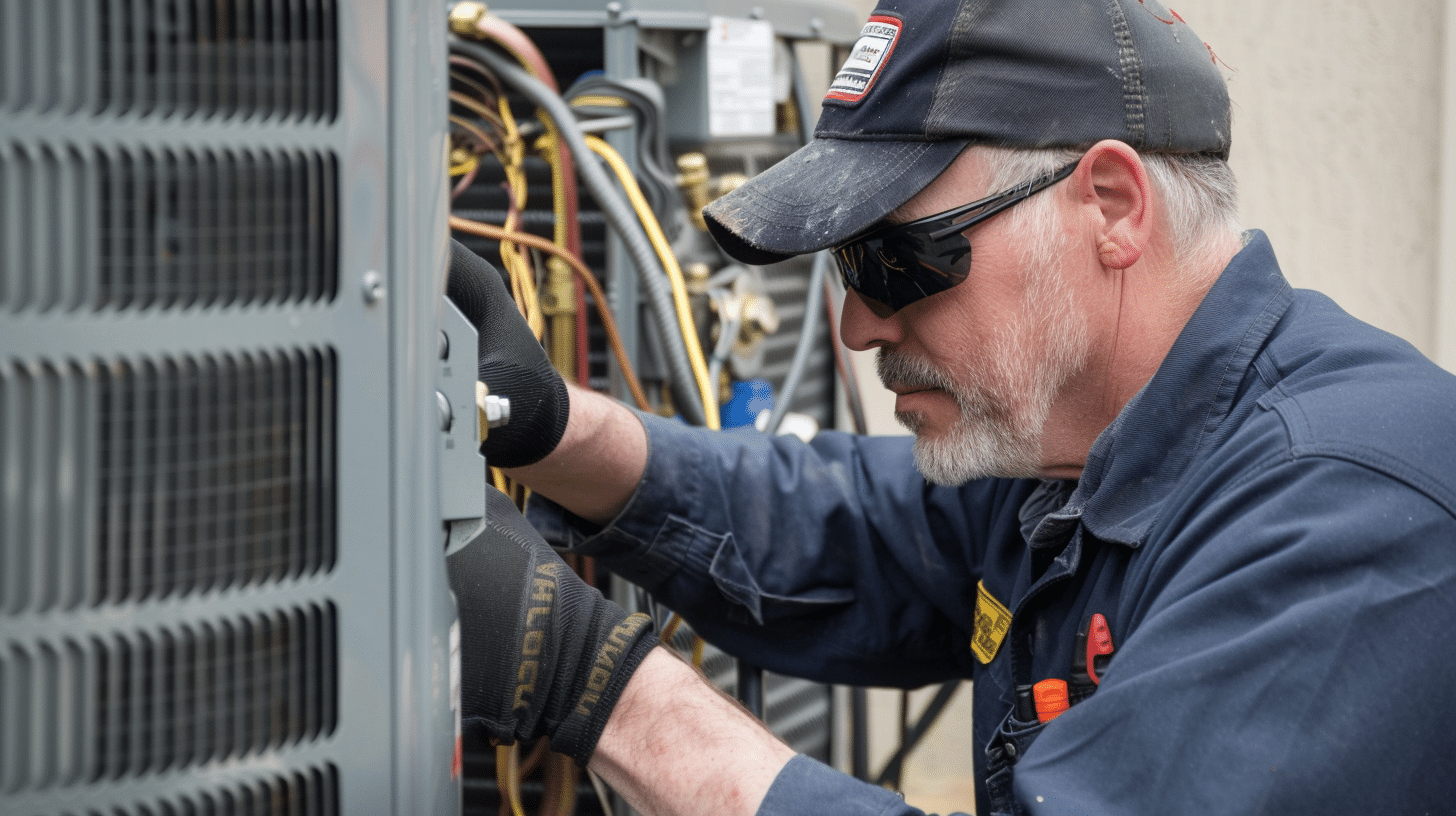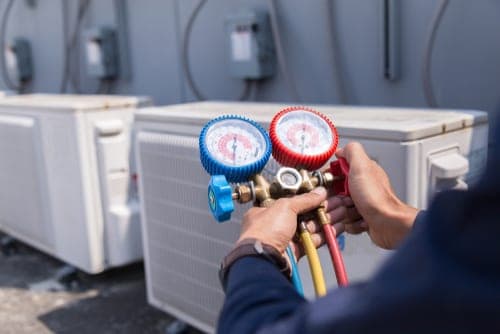When to Require Emergency AC Service Brownwood TX: What You Required to Know
When to Require Emergency AC Service Brownwood TX: What You Required to Know
Blog Article
The Relevance of HVAC Installment: Secret Factors To Consider for a Comfy Indoor Environment
The setup of a Cooling and heating system is a vital component in attaining an energy-efficient and comfy indoor setting. Elements such as the viability of the system for specific building requirements, right sizing to prevent ineffectiveness, and the competence of contractors for a high quality installment play pivotal duties. The adoption of sophisticated innovations can substantially enhance system efficiency.
Choosing the Right System

When selecting a heating and cooling system, it is important to review the capacity called for to effectively warmth or cool down the room without straining the system, which can result in raised wear and functional prices. Consulting with a professional cooling and heating specialist can give important understandings right into selecting a system that lines up with both the awaited usage and the architectural style patterns of the structure.
Additionally, thinking about the combination of clever modern technology can improve system administration and monitoring, using greater control and possible cost financial savings. By carefully analyzing these aspects, one can ensure the option of a cooling and heating system that not just fulfills instant requirements but also adds to long-lasting functional sustainability and owner comfort.
Comprehending Power Efficiency
Comprehending energy effectiveness is vital when considering a HVAC installment, as it directly influences both the environmental footprint and the functional expenses of the system. The efficiency of a HVAC system is normally indicated by ratings such as SEER (Seasonal Power Efficiency Ratio) for air conditioners or AFUE (Yearly Fuel Utilization Effectiveness) for furnaces.

Spending in an energy-efficient HVAC system not just converts to set you back savings yet also contributes favorably to ecological conservation by lowering greenhouse gas exhausts. In addition, lots of territories provide rewards or rebates for the setup of high-efficiency systems, even more enhancing their economic allure.
When assessing energy performance, consider advanced attributes such as variable rate motors, clever thermostats, and zoning capacities. These innovations improve the system's capacity to adjust to varying demand, consequently enhancing energy usage. It is crucial to seek advice from with cooling and heating experts that can provide insights right into the most effective options tailored to specific environment conditions and usage patterns, making sure optimal performance and convenience.
Importance of Appropriate Sizing

Conversely, a small heating and cooling system will certainly battle to reach the desired temperature, especially throughout extreme climate condition. This can lead to continuous procedure, bring about greater power expenses and prospective overheating of system elements. Additionally, poor sizing can bring about irregular temperature distribution, causing certain areas of a building to be too cool or too cozy.
To accomplish the proper sizing, an extensive load computation is essential. This involves analyzing different factors such as the structure's square video, insulation degrees, home window kinds, and regional environment problems. By precisely establishing the heating and cooling down needs of an area, a/c professionals can recommend systems that guarantee reliable procedure, lowered energy intake, and improved interior convenience.

Ensuring Quality Installment
A smooth HVAC installment is the cornerstone of a system's long life and performance. Making certain quality setup includes careful attention to detail, adherence to market standards, and employing proficient professionals. The process begins with selecting a seasoned and certified HVAC professional. This professional should have in-depth understanding of diverse systems and be experienced at examining the particular needs of the building.
Correct installation goes beyond mere placement of devices. It involves exact calibration to make certain ideal air flow, efficient power consumption, and uniform temperature level circulation. This includes accurate ductwork installment, ensuring links are leak-free and safe, which is essential for maintaining system efficiency and indoor air top quality.
Furthermore, the implementation of innovative analysis tools throughout installation can identify prospective problems early, avoiding costly repairs and expanding the life-span of the system. The service provider needs to likewise make sure that all parts are suitable and that the system follows local building ordinance and laws.
Regular Maintenance Practices
When the foundation for a high-performing a/c system is established through high quality installation, the emphasis must change to regular maintenance practices to ensure ongoing performance and integrity. Regular upkeep not just expands the life-span of the system but also boosts interior air quality, decreases energy intake, and stops expensive repair work. Necessary maintenance jobs consist of regularly you could try here changing air filters, cleaning up evaporator and condenser coils, and inspecting the system for obstructions or leaks.
Air filters should be replaced or cleansed each to 3 look at this site months, depending upon use and ecological factors. This simple task can significantly boost air flow and system efficiency (lawn irrigation installation Brownwood TX). Cleaning up the evaporator and condenser coils stops dirt build-up, which can impede warm absorption and cooling capability. Furthermore, expert specialists need to evaluate the system every year, checking for refrigerant degrees, electrical connections, and general system performance.
Interest to ductwork is also important; securing and cleansing air ducts regularly protects against air loss and contamination. Implementing a maintenance routine guarantees that small problems are dealt with prior to they intensify, securing the system's operational stability. By sticking to these upkeep methods, home owners can maximize their heating and cooling system's performance and keep a comfy interior setting year-round.
Verdict
By selecting an ideal system customized to particular building requirements, recognizing power efficiency, and making certain appropriate sizing, inefficiencies can be reduced. The involvement of proficient specialists assurances top quality setup, while the integration of sophisticated technologies improves system efficiency and tracking.
A number of types of Cooling and heating systems are offered, consisting of split systems, hybrid systems, duct-free systems, and packaged home heating and air systems, each with unique benefits and limitations.
Understanding power effectiveness is crucial when taking into consideration an A/c installment, as it directly impacts both the ecological footprint and the operational prices of the system. The performance of a Heating and cooling system is usually indicated by scores such as SEER (Seasonal Power Effectiveness Ratio) for air conditioners or AFUE (Yearly Gas Use Performance) for heaters (Commercial HVAC contractor in Brownwood TX).As soon as the structure for a high-performing A/c system is established via quality installment, the emphasis must change to routine maintenance practices to guarantee ongoing efficiency and integrity. Furthermore, specialist technicians read this post here must evaluate the system yearly, inspecting for cooling agent degrees, electric connections, and general system performance
Report this page